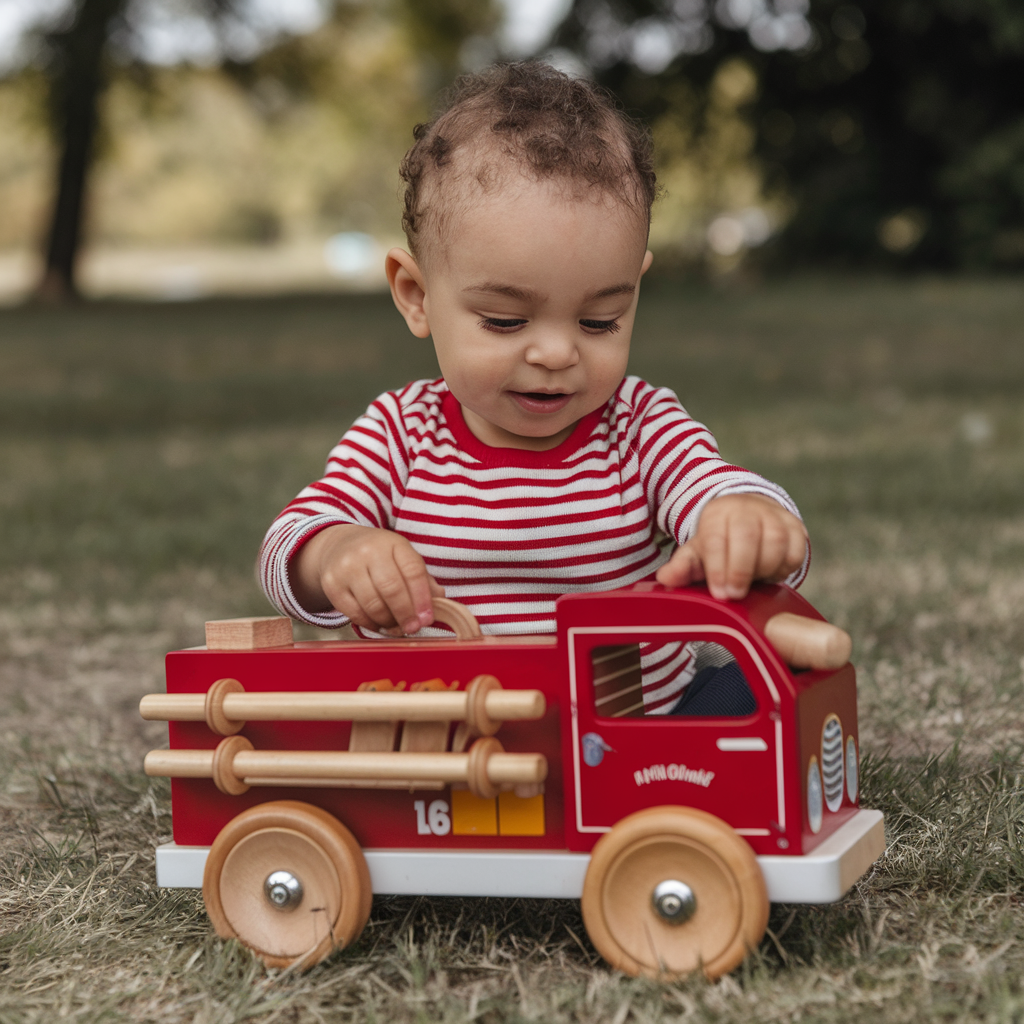Wooden toys have been a favorite for generations, known for their durability, simplicity, and versatility. Not only do they promote cognitive and motor development, but they are also eco-friendly and free from harmful chemicals. However, it’s important to choose the right toy according to the child’s age to ensure they gain the maximum benefits from play. Below are the best wooden toys for different age groups and how each one helps in children’s development.

1. 0 to 1 Year: Simple Sensory-Stimulating Toys
For babies, wooden toys that stimulate the senses are the best choice. At this stage, they are just beginning to explore the world around them, and toys with various textures, soft colors, and easy-to-grasp shapes are ideal.
Best options:
- Wooden rattles: Stimulate auditory and tactile senses, helping improve motor development.
- Stacking toys: Promote hand-eye coordination and allow babies to explore the concept of balance and proportion.
These toys are safe for little ones, with simple designs that don’t pose a choking hazard.
2. 1 to 3 Years: Shape Sorting and Motor Coordination Toys
Between 1 and 3 years, children are developing fine motor skills and starting to understand basic concepts of cause and effect. Toys that require more interaction, such as stacking and shape sorting toys, are ideal for this phase.
Best options:
- Building blocks: Large, colorful wooden blocks help develop motor skills and creative thinking.
- Shape sorting toys: Help children recognize shapes and colors, promoting cognitive and motor skills as they try to fit each piece correctly.
These toys teach concepts of shape, size, and space in a fun and engaging way, which are essential for cognitive development at this stage.
3. 3 to 5 Years: Pretend Play and Creativity Toys
Children between 3 and 5 years enter the pretend play stage, where their imagination starts to flourish. Toys that encourage creativity and allow them to replicate real-world scenarios are great for this age group.
Best options:
- Wooden dollhouses: Allow children to create stories and settings, helping develop language and social skills.
- Wooden play kitchens and tools: Pretend play toys encourage imitation of everyday activities, promoting both motor and social skills.
These toys not only stimulate imagination but also help children develop empathy and communication abilities.
4. 5 to 7 Years: Educational and Strategic Games
Starting at age 5, children develop a more advanced understanding of rules and strategies. Toys that challenge their cognitive skills and require problem-solving are perfect for this age group.
Best options:
- Wooden puzzles: With varying levels of difficulty, puzzles help develop logic and problem-solving skills.
- Balance and construction games: Games like wooden tower balance and complex building blocks stimulate logical reasoning and fine motor skills.
At this age, children enjoy challenges and love engaging in activities that test their mental abilities, while also encouraging cooperation or healthy competition with friends or family.
Read more: Creative Wooden Toys That Stimulate Children’s Imagination
5. 7 Years and Up: Construction and Scientific Toys
For older children, wooden toys that offer more complexity and challenges are ideal. These toys help promote critical thinking and scientific curiosity, while also fostering creativity in more sophisticated ways.
Best options:
- Wooden construction kits: Toys that allow building more complex structures, such as bridges or buildings, stimulate critical thinking and engineering skills.
- Scientific experiment kits: Wooden kits to build circuits or conduct small experiments are great for sparking interest in science and technology.
These toys encourage children to explore, test, and develop solutions to problems, while also preparing them for more complex challenges in school and life.
Conclusion
Wooden toys are versatile and perfect for every stage of childhood development. From the first months of life through older childhood, these toys provide a fun and educational way to stimulate children’s motor, cognitive, and social skills. By choosing age-appropriate toys, you’re not only promoting entertainment but also contributing significantly to your child’s growth and learning.
